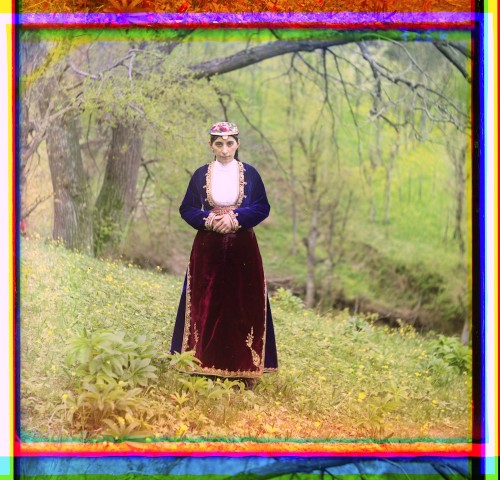The original title of this book was Kvachi Kvachantiradze; presumably the publisher of the English edition thought that was a bit intimidating. With names like Javakhishvili and Kvachantiradze, it is of course my book from Georgia for the Read The World challenge.

It’s actually my second attempt for Georgia; I tried reading Avelum by Otar Chiladze, but didn’t finish it. I wondered at the time if it was a problem with the translation, but this had the same translator, Donald Rayfield, and was much more readable.
It’s a big fat novel — 523 pages; my heart sank slightly at the sight of it — but the blurb was promising:
This is, in brief, the story of a swindler, a Georgian Felix Krull, or perhaps a cynical Don Quixote, named Kvachi Kvachantiradze: womanizer, cheat, perpetrator of insurance fraud, bank-robber, associate of Rasputin, filmmaker, revolutionary, and pimp. Though originally denounced as pornographic, Kvachi’s tale is one of the great classics of twentieth-century Georgian literature — and a hilarious romp to boot.
And on the whole it lives up to that blurb. Obviously it’s not actually ‘hilarious’ — it is after all literary fiction — but I’ve long since learned that literary reviewers have very low standards for humour, and I know to make allowances. I would describe it as lively and entertaining.

Kvachi is quite an appealing character just for his dynamism and inventiveness, but he is a complete shit: he makes his way in the world entirely by lying, cheating and stealing, and has no redeeming qualities. The narrative largely consists of one swindle after another and a sequence of seduced and betrayed women, which would be too repetitive to sustain a 500 page novel; what keeps it interesting is the regular changes of backdrop.
So he starts from a humble background in Georgia in the 1890s; works his way up, via university in Ukraine, to the highest circles of Russian society, and ingratiates himself with Rasputin; things get difficult, so he moves on to France; he returns to Russia in time for the Great War and the Russian Revolution; he initially works within the revolution but in due course flees back to the briefly independent Georgia; soon revolutionary politics catches up with him and eventually he flees again.

The author, sadly, did not manage to escape Soviet politics himself. He was not sufficiently willing to keep to the party line, and was tortured and shot during Stalin’s Great Purge. It’s tempting in fact to see Stalin as a model for Kvachi; a Georgian, Ioseb Jugashvili, of humble origins, with intelligence and charisma but a complete ruthlessness, who worked his way to the top of Russian society.
But perhaps that’s a bit facile; there are no shortage of literary and historical models for a character like Kvachi. The blurb mentioned Felix Krull; you could think of Jonathan Wild or even Becky Sharp. A more recent parallel is Rácz from Peter Pišťanek’s brilliant (and genuinely funny) Rivers of Babylon.
» The photos are all from Sergey Prokudin-Gorsky’s amazing colour photographs of the Russian Empire in the 1910s, created using three separate black and white images, each taken with a colour filter, which can be recombined into a full colour image. You can find them at the Library of Congress website [woman, fish, bamboo]. I picked examples from Georgia, although the woman is stretching the point: she is in Armenian national dress and from a town which is now on the Turkish side of the border.